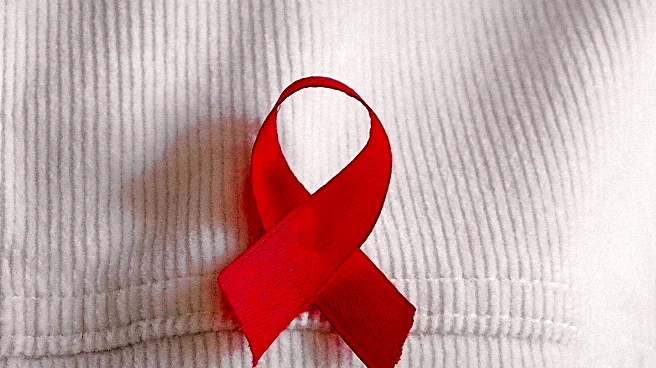What's Happening?
A clinical trial in South Africa, sponsored by Gilead Sciences, has shown promising results in the effort to cure HIV. The trial, conducted in Umlazi township, involved 20 women who had been on antiretroviral therapy for an average of seven years. The trial aimed to flush HIV out of hiding and neutralize it using a drug called vesatolimod and broadly neutralizing antibodies (bNAbs). Four participants remained in remission with undetectable viral loads, suggesting potential success in curing HIV. The trial is significant as it addresses the unique demographic and biological characteristics of HIV in Africa, where the majority of infections occur in young women.
Why It's Important?
The trial represents a significant step forward in the global fight against HIV, particularly in Africa, where the majority of HIV infections occur. The success of the trial could lead to more targeted and effective treatments for HIV, especially for women who are underrepresented in cure trials. The approach used in the trial, known as 'kick and kill,' could provide a new strategy for curing HIV by targeting the virus in its hiding places within the body. This development could have a profound impact on public health in Africa and potentially reduce the prevalence of HIV globally.
What's Next?
Researchers are eager to continue exploring the factors that contributed to the success of the trial for some participants. There is interest in launching new trials that include women infected at unknown times and those with co-infections common in sub-Saharan Africa, such as tuberculosis or hepatitis B. Understanding the genetic factors and immune responses that led to remission in some participants could improve future strategies. The trial has sparked interest in other African countries, with researchers in Botswana expressing a desire to conduct similar trials.
Beyond the Headlines
The trial highlights the importance of conducting HIV research in diverse populations, as biological responses to the virus can vary significantly. The success of the trial could lead to more inclusive research practices and better representation of women in HIV cure trials. Additionally, the trial underscores the need for social empowerment programs that address the socioeconomic factors contributing to HIV vulnerability, particularly among young women in Africa.










